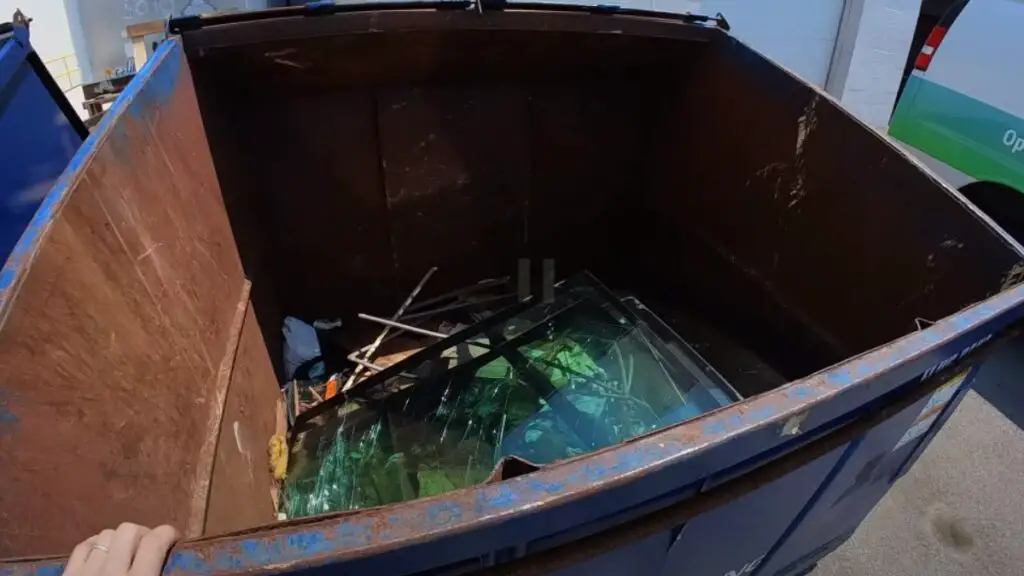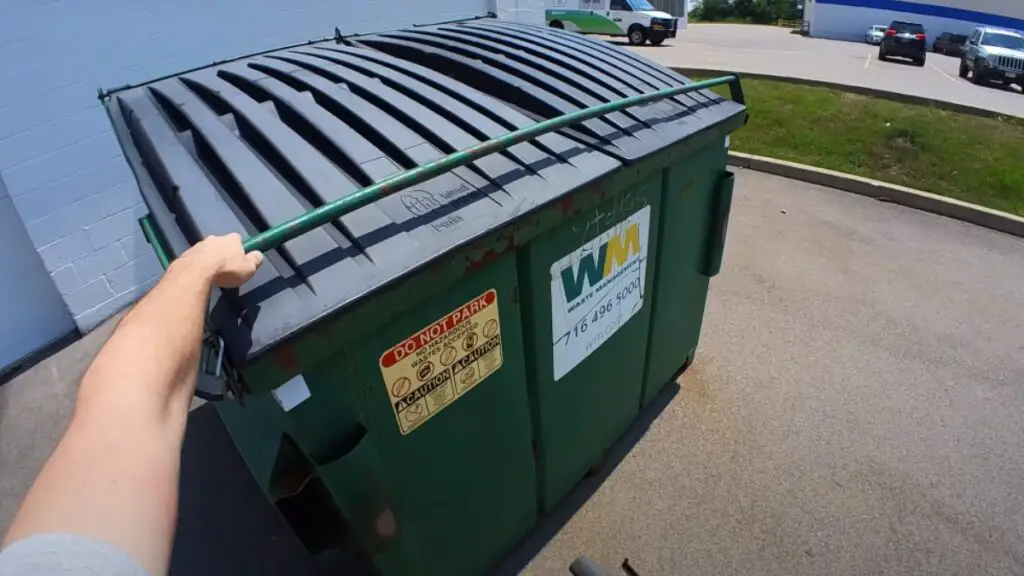If you’re looking for dumpster diving in Hawaii, then you have come to the right place.
Understanding the rules, laws, and regulations in your state should be your first priority to avoid any legal issues.
In this article, we will dive into whether it’s legal or illegal to dumpster dive into Hawaii.
I will also give you some key points on how to make extra money from diving in Hawaii.
Dumpster Diving In Hawaii

Each year, Hawaii generates over 2.6 million tons of waste, a considerable portion of which is food waste that ends up in dumpsters.
Notably, according to the USDA, around 40% of food in the United States goes uneaten, translating into an enormous potential for waste recovery and reduction.
In the context of Hawaii’s cost of living, which is over 92% higher than the mainland U.S. average, dumpster diving can be a practical means of reducing food costs.
Is Dumpster Diving Illegal in Hawaii?
While the activity of dumpster diving may seem like a gray area in terms of legality, it is essential to understand the specific regulations in different states.
In Hawaii, according to section 6-9 of the Honolulu Revised Ordinances (HRO), it is unlawful for any person to remove any solid waste or recycling from a city disposal facility or any other city property.
Thus, technically speaking, dumpster diving can be considered illegal.
However, enforcement of this ordinance can vary and is often a low priority for law enforcement unless there are accompanying issues such as trespassing, littering, or causing a public nuisance.
Is Dumpster Diving Illegal At Night In Hawaii?
In Hawaii, the legality of dumpster diving varies depending on the specific circumstances and the location.
Generally, dumpster diving is not considered illegal if the dumpster is located on public property and has not been secured or locked.
However, if the dumpster is located on private property or within a gated or locked area, dumpster diving can be considered trespassing, a crime punishable by law.
It’s also important to remember that while dumpster diving itself may not be illegal, the possession of certain types of discarded items may be.
For example, possessing discarded personal identification or credit card information can lead to charges related to identity theft.
As for the time of day, there is no specific law prohibiting dumpster diving exclusively at night, but city and county noise ordinances should be respected to avoid potential disturbances.
Best Places To Go For Dumpster Diving In Hawaii
When it comes to dumpster diving in Hawaii, a few spots stand out for their potential treasures.
For food divers, the dumpsters behind the supermarkets of Honolulu, particularly in the Kaka’ako area, are known to have an abundance of slightly dated but still good-quality produce.
According to a study by the Natural Resources Defense Council, supermarkets in the U.S. discard nearly 43 billion pounds of food each year, a portion of which is perfectly edible.
If you’re interested in finding discarded furniture or household items, the dumpsters or trash bins around the University of Hawaii, notably during end-of-semester move-out days, are a goldmine.
A survey by the National Association of College and University Business Officers found that college students leave behind an estimated 640,000 tons of usable items each year.
Lastly, if you’re more interested in tech or electronics, you may have good luck in the business districts of Honolulu and Kapolei.
Post-conference or event cleanups often yield some surprising findings.
Here is a list of some places where you can find a treasure in Hawaii:
- Oahu’s Waikiki Neighborhood
- Downtown Honolulu
- Hilo Farmers Market, Big Island
- Maui Mall, Maui
- Lihue Town, Kauai
- Kona Commons Shopping Center, Big Island
- Kapaa Town, Kauai
- Kahului Shopping Center, Maui
- Haleiwa Town, Oahu
- Pearlridge Center, Oahu
How Much Can You Make From Dumpster Diving In Hawaii?
Dumpster diving in Hawaii can indeed provide a surprising source of income, although the monetary returns can vary significantly based on several factors.
In a good month, devoted dumpster divers have reported earnings of up to $1000, especially when targeting areas with high tourist footfall.
Discarded items such as furniture, electronics, and even jewelry can be resold for a tidy profit.
Moreover, Hawaii’s strict recycling laws mean that even typical waste like cans and bottles can be cashed in for $0.05 – $0.15 per item.
However, it’s essential to keep in mind that these are optimal scenarios; average earnings are likely to be far less, and it’s crucial to consider the time and effort.
So, if you are planning to dumpster dive at Alabama, Montana, Alaska, or Massachusetts; first you should check the state laws before going to your hunt.
Safety Precautions For Dumpster Diving In Hawaii
When it comes to dumpster diving in Hawaii, safety should always be your first priority.
Here are a few precautions to keep in mind for a safe and successful adventure.
1. Wear Protective Gear
It’s essential to wear sturdy gloves to protect your hands from sharp objects or harmful substances.
A hard hat can protect your head from accidental bumps. Consider wearing high-visibility clothing if you’re dumpster diving early in the morning or late at night.
2. Use a Reaching Tool
A grabbing tool can help you reach items without having to climb into the dumpster. This reduces the risk of injury.
3. Inspect Area
Before you start, inspect the area for potential hazards. Be alert for signs of animals or insects that might have made the dumpster their home.
4. Avoid Hazardous Waste
Stay clear of dumpsters marked with biohazard symbols or any that contain sharp objects, chemicals, or any other potentially harmful waste.
5. Check Local Regulations
Dumpster diving is not illegal in Hawaii, but some businesses or properties may have rules against it. Respect private property and avoid trespassing.
6. Be Respectful
Leave the area cleaner than you found it. This shows respect for the community and makes it more likely that you’ll be allowed to return.
Remember, safety should always be your top priority when dumpster diving.
Take these precautions to heart, and you’ll be well on your way to a safe and successful dumpster diving adventure in Hawaii.

Frederick Perez is the founder of Scrape Dude. He loves exploring and finding hidden treasures in unexpected places. Frederick has been dumpster diving and gold panning for years, turning his hobby into our website to share his adventures. He’s known for his friendly advice and exciting stories, inspiring others to discover the joy in these unique hobbies. His expertise makes Scrape Dude a trusted and fun place to learn and explore.


